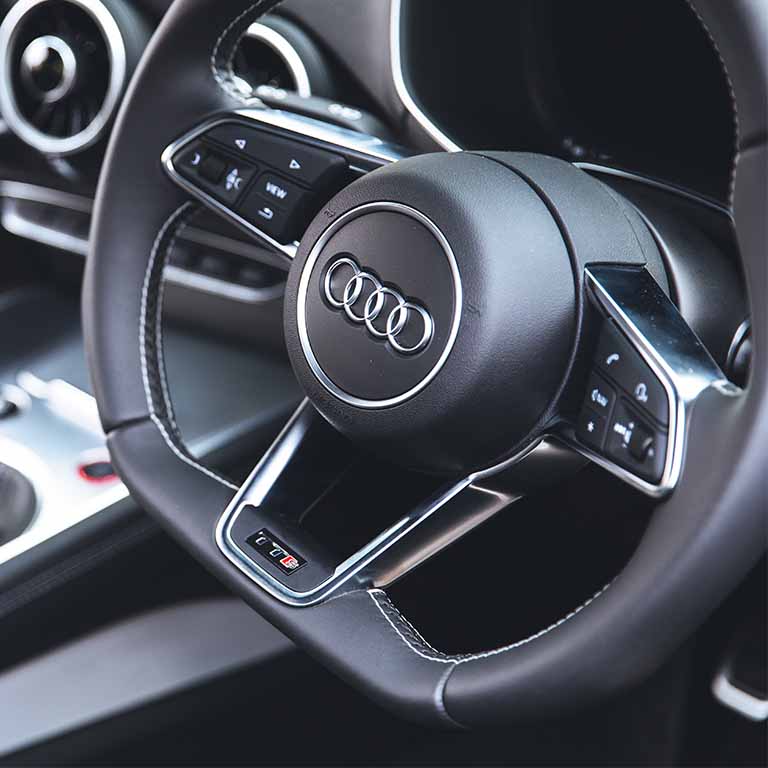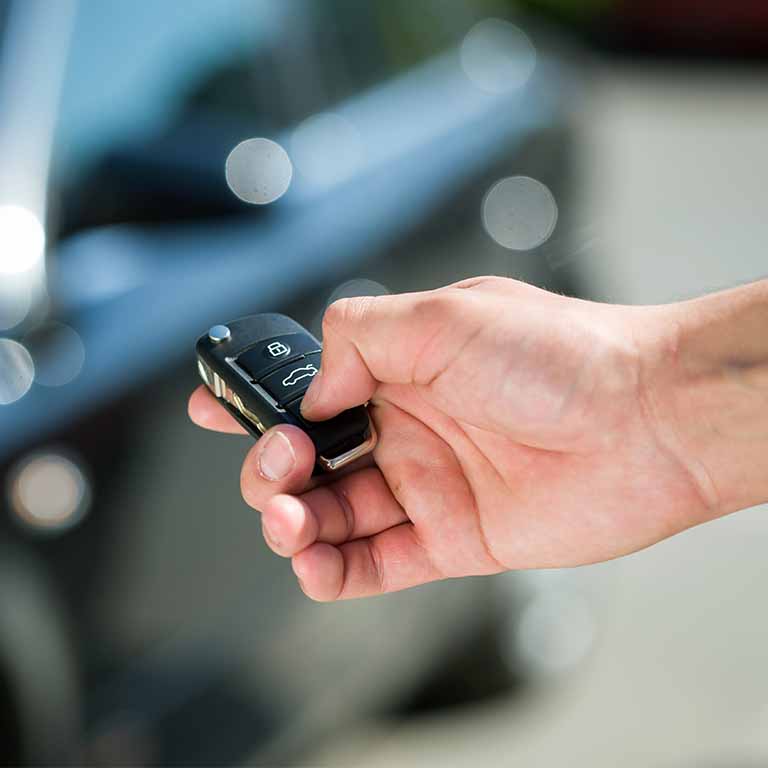
Representative Example: You could borrow £10,699 over 60 months with an initial payment of £495.89 (including £199 Admin Fee) followed by 58 monthly payments of £296.89 with a final payment of £495.89 (including optional £199 Option to Purchase Fee). Total amount repayable will be £19,012,40. 26.1% APR, annual interest rate (fixed) 13.3%.
The Admin Fee is a £199 fee that helps cover the costs of setting up your finance agreement. It covers things like preparing your agreement documents, carrying out credit and identity checks, and arranging payment to the broker. This fee is paid at the same time as your first payment, and it isn't refundable. It's separate from your deposit and from any other charges on your agreement.
The Optional Purchase Fee is a £199 fee you only pay if you decide to buy the car at the end of your finance agreement. You don't have to buy the car, that's entirely your choice. If you choose to hand the car back instead, you won't pay this fee. If you decide to keep the car, you'll need to pay the £199 Optional Purchase Fee, usually along with your final payment, to transfer legal ownership of the vehicle to you. This fee covers the cost of finalising your agreement and removing our interest in the vehicle. It's separate from your deposit and from any other charges on your agreement.
The amount shown is an illustration of a typical monthly payment based on the Representative APR. These figures are for guidance only; the actual payments and rate you're offered will depend on your individual circumstances and are not guaranteed. Please see below for details of how your first and final payments may be different.
Buying a Used Audi on Finance
Buying a used Audi on finance can be a good way to enjoy a premium car at a more affordable price. It can also be a suitable option for first time driver car finance if you're looking for quality and value in your first car. This guide covers key questions about used Audi finance and outlines the most popular Audi models in the UK.
Many models offer a smooth drive, comfortable interiors, and a high standard of technology. Buying a used Audi means you get many of these benefits at a lower cost.
Audi’s reputation for engineering and design makes it a popular choice for buyers who want long-term value. The range includes models that combine sporty performance with everyday needs, making them a good option for families too.
Audis are generally more expensive to insure than smaller or budget brands. That’s because they’re classed as premium cars, often come with powerful engines, advanced technology, and higher repair costs. Insurance groups for Audi models can range from mid to high, depending on the model, trim, and engine size.
Smaller models like the Audi A1 or A3 are usually cheaper to insure compared to larger or sportier models like the A5, Q5, or anything from the S or RS range. If you’re looking to keep insurance costs low, it’s best to go for a lower engine size, avoid high performance versions, and choose a model with standard trim.
Your age, driving history, postcode, and the way you use the car will also affect how much you pay. But overall, while Audis aren’t the cheapest to insure, there are ways to lower the cost, like comparing quotes, increasing your excess, and choosing a car in a lower insurance group.
Used Audis are generally considered reliable, especially if they’ve been well maintained. Audi is known for its strong build quality, smart design, and impressive safety features, making them a popular choice for families and drivers who want comfort with performance. Popular engines like the 1.4 TFSI and 2.0 TDI are known to last a long time when serviced regularly. Many Audi cars go well beyond 100,000 miles without major problems, as long as they’re driven gently and have a good service history.
That said, like any brand, Audi has had some issues in the past. Older models built between 1997 and 2005 with 1.8-litre engines sometimes suffered from oil sludge problems, where the oil became thick and caused engine damage if not changed often enough. Audi extended the warranty for these engines, but only if owners could prove they kept up with oil changes, which wasn’t always easy.
Another problem to be aware of is the large airbag recall linked to Takata airbags, which affected several Audi models, including the A3, A4, A5, and S4. These airbags could be dangerous if not replaced, so it’s worth checking if a used Audi has had the recall work done.
Some Audi engines, particularly the EA888 series, have had issues with timing chains. In these engines, the timing chain tensioner can fail early, causing serious engine damage if not caught in time. Audi did offer extended warranties on some of these models, and many repairs were covered if done by an approved garage using original parts.
Because Audis are full of high-tech features, they can also have electrical problems. Things like faulty lights, infotainment glitches, and battery issues are not uncommon, especially in modern models. These problems are often due to wear and tear, but they can be more expensive to fix than in simpler cars.
In summary, a used Audi can be a very reliable and enjoyable car to own, as long as it has been looked after properly. Check the service history, look for signs of common problems, and make sure any recalls have been handled. If you're buying a model with a solid engine and a clean history, an Audi can offer great performance and comfort at a reasonable price.
Audi parts can be more expensive than those for mainstream brands like Ford or Vauxhall, especially for newer models with more advanced technology. This is mainly because Audi uses high quality materials and includes lots of premium features as standard, things like digital dashboards, parking sensors, and complex suspension systems. These parts naturally cost more to replace or repair.
However, it's not all bad news. Audi is part of the Volkswagen Group, which means many of its components, like engines, gearboxes, and electronics are shared with other brands like Volkswagen, SEAT, and Skoda. This helps keep the cost of some parts down, especially for common repairs or routine servicing.
You can also save money by choosing a trusted independent garage rather than going directly to an Audi dealership. Independent specialists often use approved or high quality aftermarket parts that are more affordable but still reliable. Labour costs at smaller garages also tend to be lower, which can make a big difference over time.
Yes, Audi cars usually hold their value better than many non premium brands. This is mainly because Audi has a strong reputation for quality, performance, and style, things that continue to appeal to buyers even when the cars are a few years old.
Popular models like the Audi A3, Q3, and Q5 tend to keep their value especially well. These cars are in high demand on the used market, which helps reduce how much value they lose over time. Features like modern tech, good fuel efficiency, and solid build quality all play a role in helping Audis stay desirable.
That said, like all cars, Audis do still lose value as they age. How much value a car loses depends on several things: how many miles it has done, how well it has been maintained, whether it has a full service history, and what condition it’s in overall. Well kept cars with low mileage will always sell for more than similar models that haven’t been looked after.
If you're looking for a used car that won’t drop in value too quickly, an Audi can be a smart choice, especially if you choose a model that’s already proven to be popular and reliable.
Here are some of the most popular Audi models financed in the UK, and for good reason. Each one offers something different, depending on what the driver needs or prefers.
Yes, many lenders offer car finance for used Audi's. Hire Purchase is one of the most common options. It lets you spread the cost over fixed monthly payments for 3–5 years. Once the agreement ends, you own the car.
By checking the car’s history, choosing the right Audi model for your needs, and planning for running and insurance costs, you can find a car that suits your lifestyle and your budget.
Remember: When buying any used vehicle, there’s always a chance that issues may come up later. If you’ve financed a car and start to notice mechanical problems, it’s important to contact both your finance provider and the dealership where you bought the vehicle. Acting quickly can help get the issue resolved and protect your rights.
The Audi A3 is a compact hatchback that feels high quality and is easy to drive. It’s popular with people who want a premium car that’s comfortable and efficient. You can choose from 1.0L and 1.5L petrol engines, a 2.0L diesel, or a plug-in hybrid model called the A3 Sportback 40 TFSI e, which can drive up to 40 miles on electric power. Diesel versions can reach up to 57 mpg, and petrol models can go up to 53 mpg. Inside, the A3 comes with a 10.1-inch touchscreen, three zone climate control, and optional ambient lighting. Some models have a Sonos sound system with 15 speakers. The boot holds 309 litres, enough for everyday needs.
The Audi A1 is a small car with a stylish design and good quality. It’s a good option for new drivers and city use, especially if you’re looking for low running costs and cheaper insurance. The A1 is available with 1.0L and 1.5L petrol engines and can return up to 52 mpg. It has a modern interior with a digital driver display and touchscreen for settings and media. You can also get it with an optional Bang & Olufsen sound system. The boot holds 335 litres or up to 1,090 litres with the back seats folded down.
The Audi Q3 is a compact SUV that gives you more space and a higher driving position. It’s a good choice for families who need room for things like pushchairs, bags, or shopping. Engine choices include 1.5L and 2.0L petrol, 2.0L diesel, and a plug-in hybrid (Q3 45 TFSI e) that can drive up to 35 miles on electric power. Diesel models can return up to 52 mpg, while petrol versions go up to 44 mpg. The interior has leather seats, a sunroof, a digital display for the driver, and a touchscreen in the centre. You can also choose a Sonos sound system with 15 speakers. The boot holds 530 to 675 litres, or 380 litres in the hybrid.
The Audi A4 is a saloon or estate car that feels smooth and high end. It’s good for long drives and people who want more space and comfort. Engine options include 2.0L petrol or diesel, most with mild-hybrid support to save fuel. Diesel versions can return up to 53 mpg, and petrol models can go up to 44 mpg. Inside, you’ll find a spacious layout with heated seats, a touchscreen, separate climate controls, and a large screen for the driver. Higher trims may have a Bang & Olufsen sound system with 19 speakers. The boot holds 340 litres.
The Audi Q5 is a mid size SUV with more room than the Q3. It’s popular with families, thanks to its extra space for passengers and luggage. You can get it with 2.0L petrol or diesel engines, or a plug-in hybrid (Q5 55 TFSI e) that can drive up to 39 miles on electric power. Diesel versions return up to 47 mpg, and petrol models around 38 mpg. Inside, the Q5 offers tri-zone climate control, heated front and back seats, a panoramic sunroof, a 10.1-inch touchscreen, and a 12.3-inch digital display. Some versions include a Bang & Olufsen 3D sound system. The boot holds 731 litres and expands to 1,529 litres with the seats down.


